If I were the boss of Illinois, I could draw a big red X over Hillside and a big red X over Oak Park. Just erase those communities off the face of the earth. Then, we wouldn’t need to worry about the schools there, or the children in them, or the public safety or the hospitals. We could spend the money on street upkeep and sanitation, instead, in Maywood or River Forest. I like those town names better anyway. They sound so full of nature.
If I did that, I could just forget about the roughly 7,900 people in Hillside. I could just wipe away the 52,000 people of Oak Park. That’s OK, right? No one important lives there. Actually, plenty of important people live in both places. I’ve got friends there. Oh, yes, Illinois House Speaker Chris Welch lives in Hillside and Senate President Don Harmon lives in Oak Park. They’re the real Illinois bosses, along with Gov. J.B. Pritzker. I can’t forget them.
I created that hypothetical boss dream, though, to help you see what the real bosses are doing as they draw community districts and decide how we’ll be represented for the next 10 years.
Right now or very soon, you’ll be hearing about how they drew our people and communities into puzzle pieces because they had a “constitutional obligation” to do so. You’ll hear how they held more public meetings than ever before to collect input from us. Does that justify wiping out people in Oak Park, Hillside, Maywood and River Forest? It shouldn’t. But that’s what our politicians are doing to assure they keep their power.
They’re refusing to wait for the full census data coming in mid-August. Instead, they’ll use other, older data we now know missed tens of thousands of us. The full census data is late due to the pandemic, but we know from the overall population number the bureau released that Illinois didn’t lose as many people as had been projected. The American Community Survey data the bureau also publishes undercounted Illinoisans by anywhere between 41,877 and 140,687 people. If we want to easily forget 140,000 people, let’s just erase Naperville.
Actually, let’s not erase anyone. Everyone should count, and everyone should get the resources they deserve. They should have a say about schools and safety in their communities, what kinds of recreational facilities they have access to and much, much more.
Our elected officials did have dozens of hearings few people knew about. Harmon kicked it off by saying he wanted to give “a megaphone to those who have been silenced.” Welch has said he believes in “one person, one vote.” So how do we make that happen when they draw districts that omit tens of thousands of us?
Like California, Oregon and Michigan mapmakers, Illinois officials could seek court permission to set aside dates in the constitution to wait for the census. Like Cook County, they could commit to a two-step process, where they draw a map now, based on community input, and then approve a final map, with census data, in August.
The people who are erased are likely to be people of color, who are less trustful of responding to government surveys. But again, you’ll hear officials say they had historic numbers of committee hearings.
“Too much has been made of what is going on in these committees, and not enough attention has been paid to what is going on in the community,” says Jay Young, executive director of Common Cause Illinois. Elected officials “understand better than any of us why this redistricting cycle is unlike any we’ve faced before.
“If they needed more time to do their jobs, they should have taken steps to secure it. If they needed more data, they should have assembled it—and told us what they were using. What they have done isn’t equity. What we will get won’t be equitable.”
And the community carving could last for 10 years. Tens of thousands of us count. And if tens of thousands come together like we did for civil rights last summer, we can change the future for ourselves and our communities. Everyone counts, and everyone will need to stand up to be sure we get counted.
Madeleine Doubek is executive director of Change Illinois, a nonpartisan nonprofit that advocates for ethical and efficient government.
This article originally appeared on Crain’s Chicago Business.
